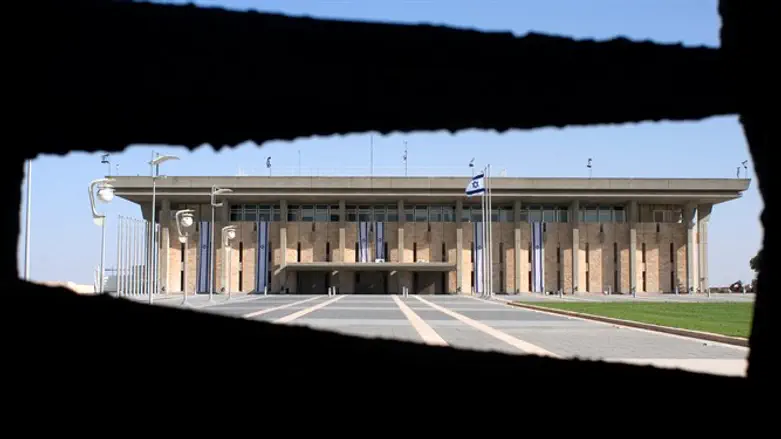
A Jewish state and a democracy: we say that we are both, but what do we actually mean? What is a Jewish state, and what is a democracy? If we chose to be flexible in our definition of Jewish, then why are we so parochial in our definition of democracy? If our definition of Jewish is diluted, then why should our definition of democratic be absolute?
If no one has the right to tell us what is a Jew, then why should anyone have the right to tell us what it means to be democratic? If there are absolute standards for democracy, there should equally be absolute standards for what is Jewish. If we can call ourselves a Jewish state without any commitment to or implementation of Jewish law, then why can’t we call ourselves a democracy, without a commitment to ensuring that our democratic principles are always strictly implemented?
The obvious answer is that it would be impossible to have a state that is both strictly democratic and strictly Jewish. Those two concepts clash on many levels. Whereas democracy ensures the right of all citizens to pursue their own interests as long as no harm is done to others, Judaism has a clear set of moral guidelines of conduct in which certain actions are criminal even if no harm is done to other individuals. While democracy holds no objective set of truths and each individual can interpret right and wrong in their own way, Judaism lays out a very clear and specific objective standard for right and wrong.
In democracy all men have an equal status and everyone has a right to pursue happiness. Judaism defines the Jewish people as different and special- whose purpose it is to attain closeness to G-d and bring G-dliness onto the world- often at the expense of one’s personal cravings and desires.
Once we come to terms with the fact that strict Judaism and pure democracy are incompatible concepts, we can begin to make an honest self assessment of what exactly we mean we proclaim that we are a Jewish and democratic state.and realize that it will be an ongoing process to find the way to balance the two.
What many people mean when they say that Israel is a Jewish state and a democracy, is that Israel is fundamentally a democracy, with a side dish of cultural Jewishness. When they talk about democracy, they mean it, whereas Judaism is a flexible concept with only secondary importance. For others, Israel is, or at least should strive to become, primarily a Jewish state. Pure democracy is a nice concept when feasible, but not the fundamental core of our identity. This duality of visions as to what we are all about has echoed since even before the foundation of the State of Israel.
There is a hidden, beneath the surface, ideological battle taking place today within Israeli society, that places all of its citizens in one of the above two categories: do we see ourselves as primarily Jewish or primarily a democracy.
The litmus test to determine which of these two groups you are apart of is, if Israel were to outlaw democracy tomorrow, would you still want to live here and feel proud of your country? Alternatively, if Israel were to denounce its Jewish character tomorrow and drop all vestiges of government-backed Judaism, would you still be proud of your country and want to live here?
If we were to pose this question to our ideological opponents, we would begin to understand how different our perspectives really are.
Having a clear perspective on this ideological divide becomes important in trying to understand and navigate the complex ecosystem of Israeli politics. Israel has dozens of political parties and technical blocs that are composed of groups based on both ideology and narrow interests.
-It is a system whose most ideologically right-wing leaders have made more territorial compromises with its enemies than any left-wing leader.
-It is a system whose Arab Muslim parties are very often on the same page as the religious Jewish parties, who seem to find more in common with each other than with their secular Israeli counterparts.
-It is a system where someone like Tzipi Livni and Ehud Olmert can be the leaders of the right-wing camp and magically reappear a few years later as the leading left-wing ideologues of the day.
When you look at this confusing system and its confusing leaders to try to determine where you belong, instead of focusing on superficial differences, ask yourself the only real pertinent question: If push came to shove and you had to sacrifice either Judaism or Democracy, which would you sacrifice? Once you’ve made that determination align yourself with the leaders that you truly believe would share your convictions.
There have been and still are leaders on the “right wing” who would sacrifice Judaism for democracy if it came down to choosing. Ask your leaders and politicians, if they had to sacrifice Judaism or Democracy- what they would pick. The answers may surprise you.
Avraham Shusteris is an accountant in Ramat Beit Shemesh. He made aliyah from Monsey with his family in 2018.